

The Palestinian Solidarity Network in NZ organised an 'Aotearoa National Rally for Gaza' on Parliament's lawn last December.
Photo/RNZ/Krystal Gibbens
Ceasefire in Gaza: A moment of hope or caution?
New Zealand has welcomed the ceasefire between Israel and Hamas, but academic Fuimaono Dylan Asafo says Aotearoa must do more.



Pacific UN operations ‘unaffected’ by global budget crisis despite Guterres warning




Cook Islands and US forge strategic alliance on critical minerals

Pacific UN operations ‘unaffected’ by global budget crisis despite Guterres warning


Auckland University law lecturer Fuimaono Dylan Asafo says the ceasefire deal between Israel and Hamas is a moment of vigilance and caution.
While he acknowledges that the agreement is worth celebrating, Asafo warns that it is too early to tell if it will hold.
“Israel has a long tradition of violating ceasefires, including when there was a temporary truce last year,” he said.
“After the agreement was signed, we've had reports of Israel military strikes against Palestinian civilians, with more than 20 being killed since the deal was made.
“So while it is a moment of celebration, we have many in Gaza, many Palestinians throughout Palestine, and of course around the world, and here in Aotearoa, New Zealand celebrating.
“There is a need to remain vigilant because we do have Israel, who has a strong history of making agreements, and even coming to the point where agreements were almost finalised, but then reneging and rejecting the terms, and then escalating its violence against Palestinian civilians.
“So it's a moment of celebration for many, after 15 months of escalating military onslaught in Palestine, but also a moment of vigilance and caution.”
The ceasefire, which takes effect on Sunday, includes several critical terms: halting military hostilities, plans for Gaza’s reconstruction over the next three to five years, a phased exchange of hostages, the opening of Gaza’s Rafah crossing for humanitarian aid, and a partial withdrawal of Israeli forces from Gaza.
The context of conflict
The ceasefire follows weeks of conflict that began on 7 October 2023 when Hamas launched a large-scale attack on Israel, resulting in the deaths of over 1400 people.
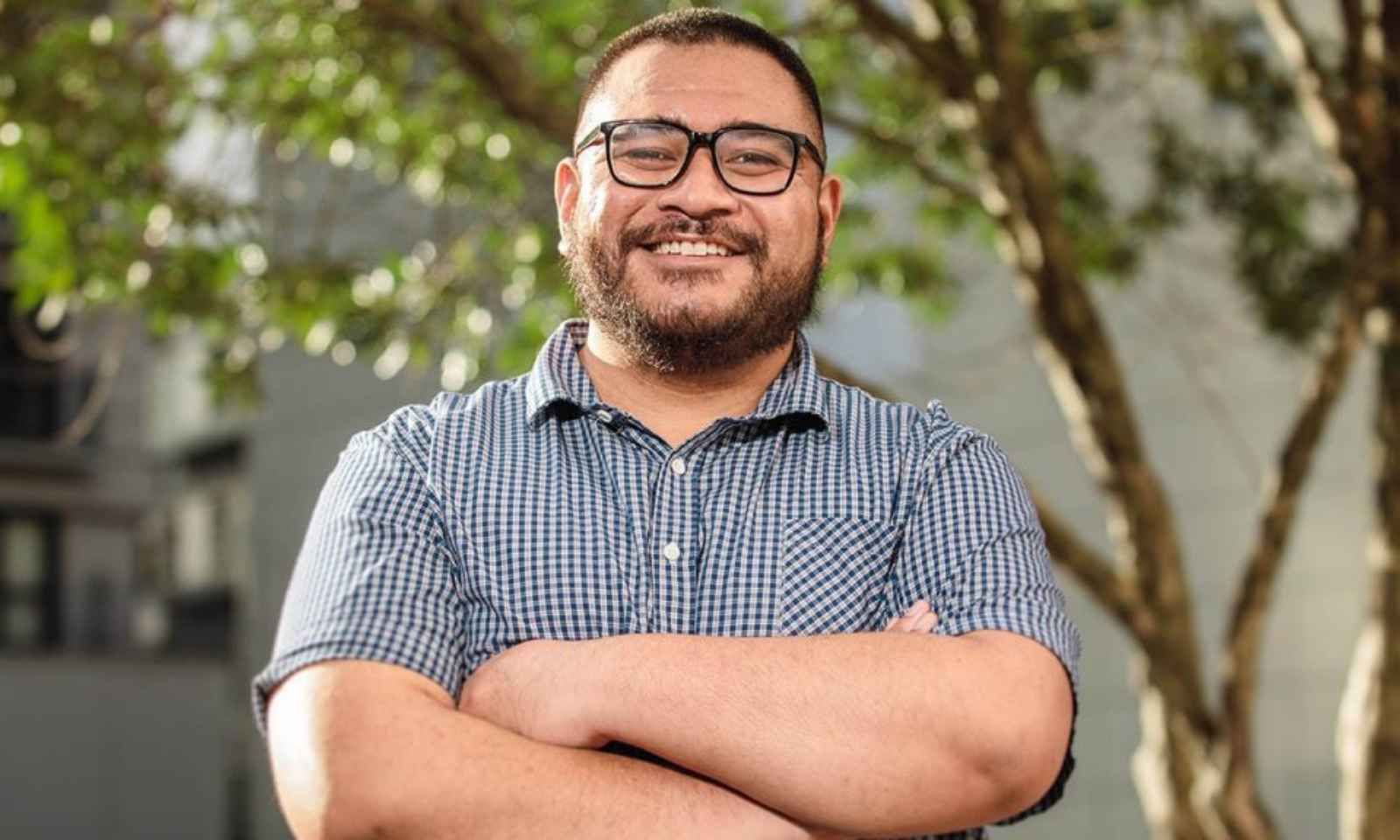
Fuimaono Dylan Asafo won a Fulbright General Graduate Award and earned his Masters of Law in Critical Race Studies from Harvard. Photo/UOA/Billy Wong.
Israel’s airstrikes and ground operations in Gaza led to more than 14,000 reported deaths, including thousands of children, and the displacement of more than one million people.
New Zealand’s stance
The Government has welcomed the ceasefire deal.
Foreign Affairs Minister Vaovasamanaia Winston Peters emphasises the “incomprehensible” human suffering caused by the conflict.
“We acknowledge the efforts of all those involved in the negotiations to bring an end to the misery, particularly the United States, Qatar, and Egypt,” Peters said.
“The terms of the deal must now be implemented fully. The protection of civilians and the release of hostages must be at the forefront of the effort.
“There now needs to be a massive, rapid, unimpeded flow of humanitarian aid into Gaza.
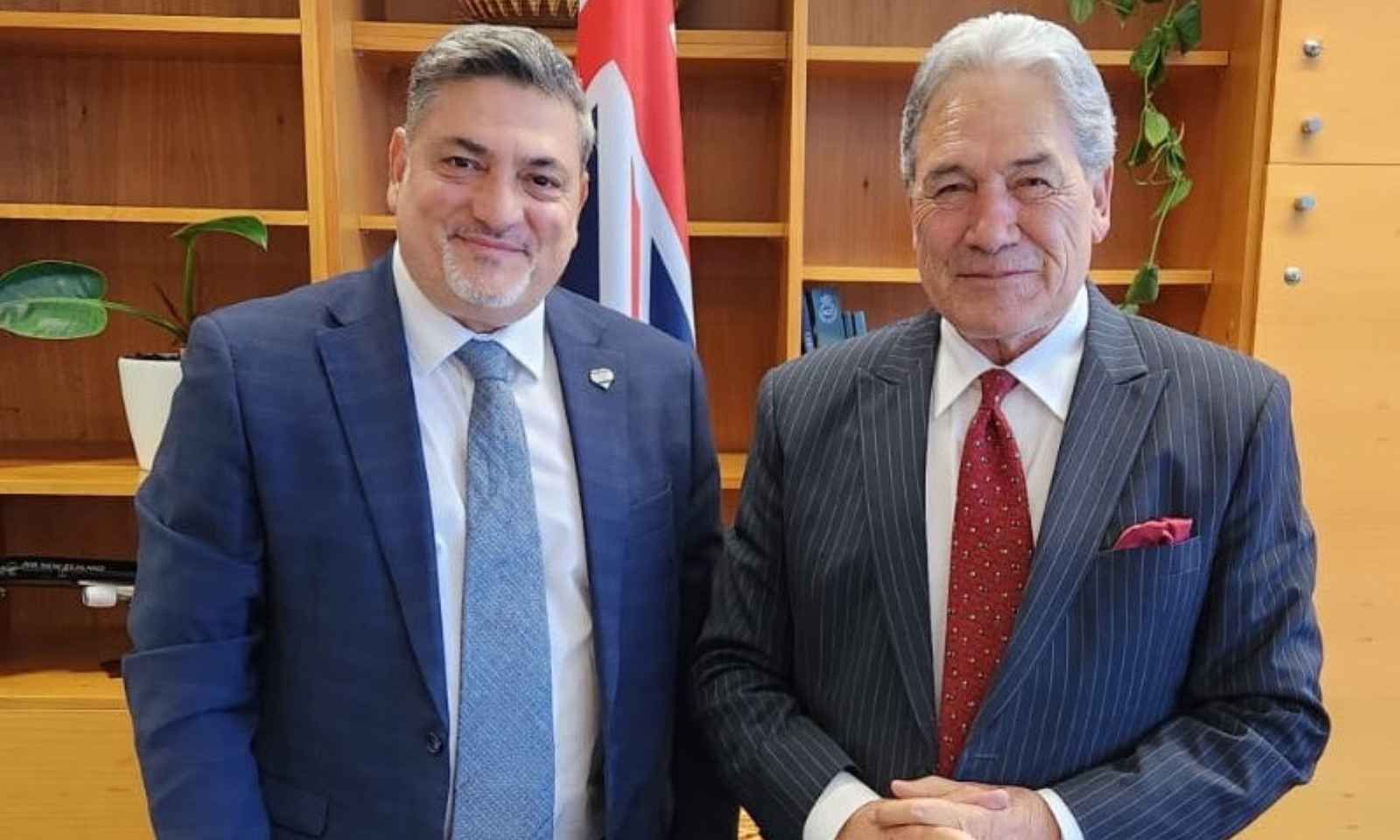
Winston Peters and Israel's Ambassador to NZ, Ran Yaakoby, met last year. Photo/Winston Peters X
“To achieve a durable and lasting peace, we call on the parties to take meaningful steps towards a two-state solution. Political will is the key to ensuring history does not repeat itself.”
Role of international accountability
Asafo emphasises the importance of international accountability in ensuring the ceasefire's success.
“What a lot of this agreement hinges on is international accountability, which for the past 15 months has been missing,” he said.
Despite New Zealand’s welcoming of the ceasefire, Asafo remains critical, highlighting a lack of decisive action over the past 15 months.
“Palestinian advocates and allied advocates in Aotearoa for over 15 months have been calling on the Ministry of Foreign Affairs and the New Zealand Government to use its power and its influence not only in the international sphere but with its bilateral relationship with Israel to facilitate a ceasefire deal.
“But those calls have been ignored. So that's why I think it's important to view New Zealand's welcoming of the ceasefire agreement with scepticism and the importance of still holding the New Zealand government accountable to its international obligations.”
Watch Winston Peters' last interview for 2024 on 531pi Pacific Mornings.
Peters argues that practical measures such as imposing sanctions against Israel are necessary to uphold international law and prevent further violence.
What NZ has done so far
In May 2024, Peters urged both Israel and Hamas to agree to an immediate ceasefire.
“The immense suffering in Gaza cannot be allowed to worsen further. Both sides have a responsibility to put an end to the conflict,” he said.
“New Zealand has been consistent in calling for restraint and stating that a military incursion into Rafah would be utterly unacceptable. We urge both sides to step back from the brink.
“We commend the efforts of those, including Egypt, Qatar and the United States, seeking to broker an agreement, which must include an extended ceasefire and the release of hostages.”
In December 2024, the Ministry of Foreign Affairs and Trade (MFAT) announced NZ$7.5 million more in funding for responses in Gaza and the West Bank.
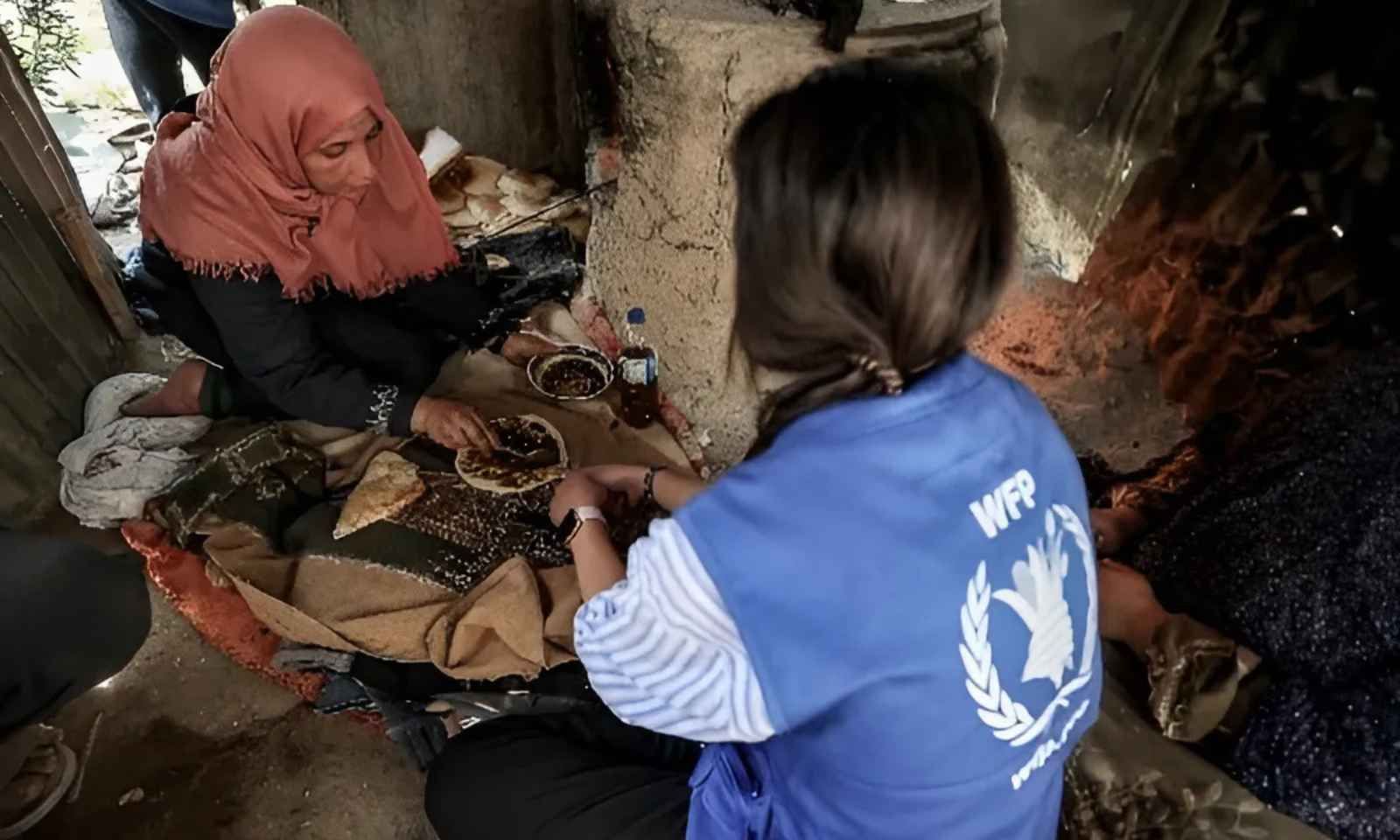
The WFP - UN food assistance branch - is the world's largest humanitarian organisation focused on hunger and food security. Photo/MFAT/WFP/Ali Jadallah
This brought New Zealand’s total contribution to $29.5m to address urgent humanitarian needs in response to the Israel-Hamas conflict.
New Zealand has made significant contributions in response to the ongoing conflict, amounting to $14.5m for the World Food Programme, $5m for the Red Cross, $8m for UNICEF and $2m for the United Nations 2720 Mechanism for Gaza.
The Ministry of Foreign Affairs and Trade (MFAT) acknowledged that some of the aid funded by New Zealand had faced looting issues driven by the catastrophic hunger situation in Gaza.
But MFAT reassured the public of their trust in funding partners to prevent aid diversion.
Peters, Prime Minister Christopher Luxon, and Defence Minister Judith Collins have had bilateral talks with various leaders, including Israel’s ambassador to New Zealand and Qatar’s Prime Minister, to address the conflict.
New Zealand has also supported the UN resolution on Palestine.
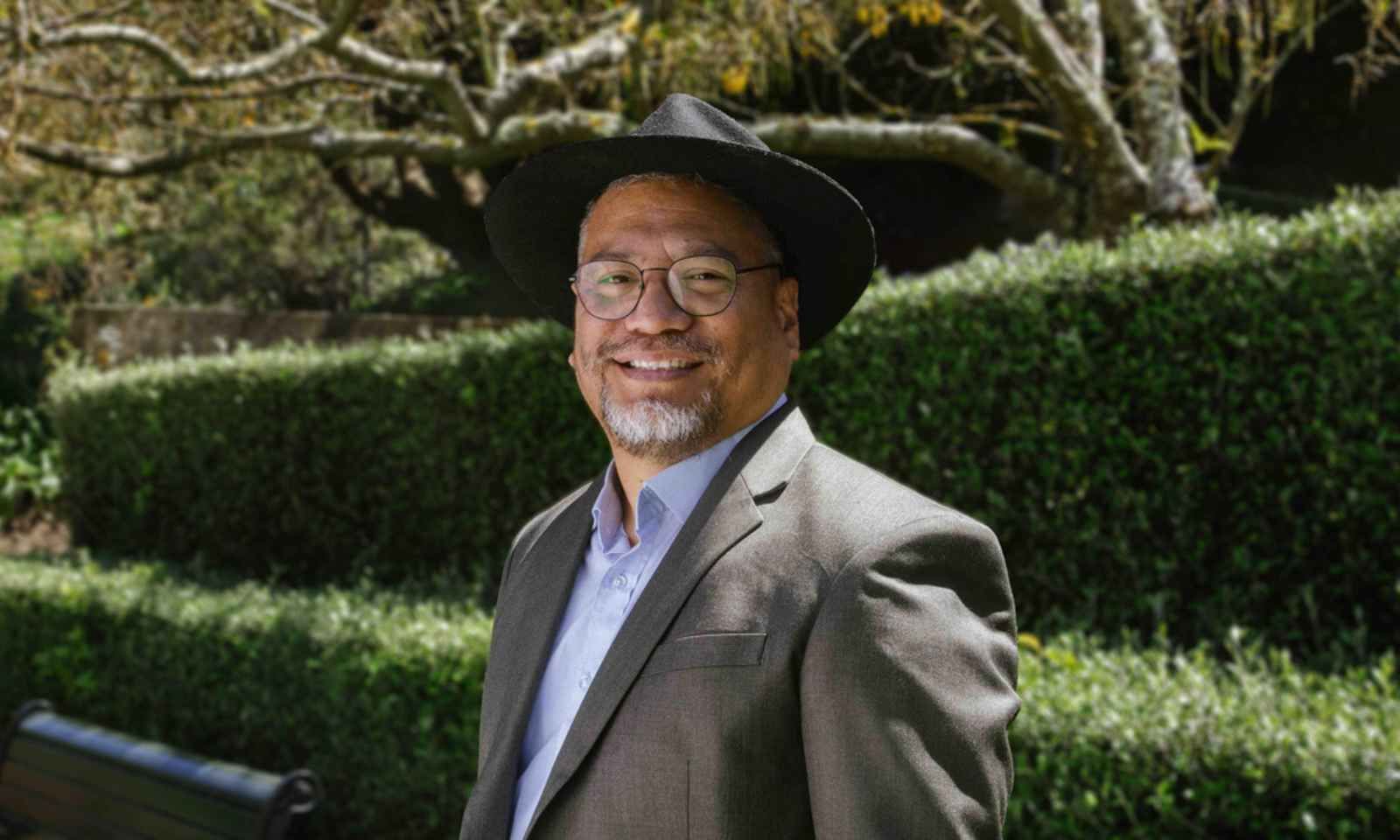
Teanau has over 20 years of experience as an activist, advocate, and organiser at local, national, and international level. Photo/Green Party NZ
Despite these efforts, MP Teanau Tuiono, the Green Party’s foreign affairs spokesperson, has urged the Government to take further action.
“Aotearoa has a part to play here, and that is why the Green Party last year lodged a Member’s Bill to sanction Israel for its unlawful presence in the Occupied Palestinian Territory,” Tuiono said.
“Adopting this Bill would mean our country backs up its recent actions in supporting a UN resolution calling for ‘unlawful presence in the Occupied Palestinian Territory.”
Pacific’s divided stance
The Pacific region has exhibited a divisive stance on Palestine.
During the United Nations General Assembly last September, seven members of the Pacific Islands Forum opposed a Palestinian-drafted resolution that called for Israel to end its unlawful presence in the Occupied Palestinian Territory within 12 months.
While 124 countries, including the Solomon Islands and the Marshall Islands, voted in favour, 14 countries, such as Fiji, Nauru, the Federated States of Micronesia, Papua New Guinea, Palau, Tuvalu, and Tonga, opposed it. Fourteen countries, including Australia, Kiribati, and Vanuatu, abstained from voting.
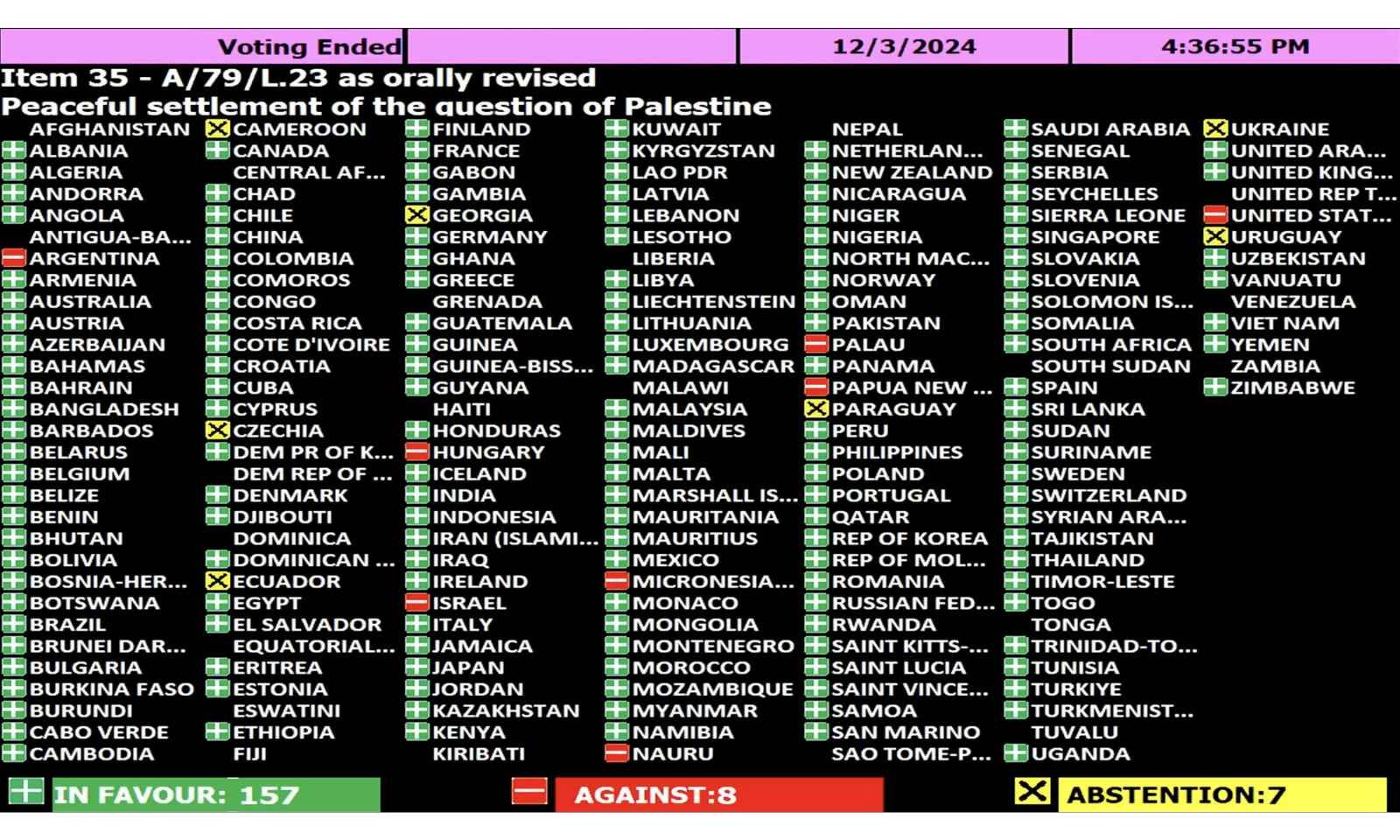
Last December, the UN General Assembly adopted a resolution on the peaceful settlement of Palestine. Photo/UN - X
Asafo says this division is due to a combination of factors, including Christian Zionism and geopolitical pressure from the United States.
“A really important driver and factor behind many Pacific states' support of Israel at the General Assembly is ongoing imperialism and neocolonialism through aid and development, particularly through the US because it has strong economic and trade and development agreements with Pacific states, essentially pressures many Pacific states to vote in certain ways.
“And that's not only with regard to Palestine but with regard to so many other issues that the US has a key interest in, for example, with regard to Cuba.
“So it's this complex mixture of factors of ideology, Christian Zionist ideology, but also US influence and pressure exerting its influence regarding its economic power and political power in the Pacific region that we see in this consistent report.
“For me, it’s extremely problematic and a deep betrayal of what I consider to be Pacific values around solidarity and respecting the land and water, which Israel has systematically been destroying in its operations in Palestine and the US as well.
“It’s also a deep betrayal of Pacific states and Pacific people's commitment to climate justice and indigenous rights.”
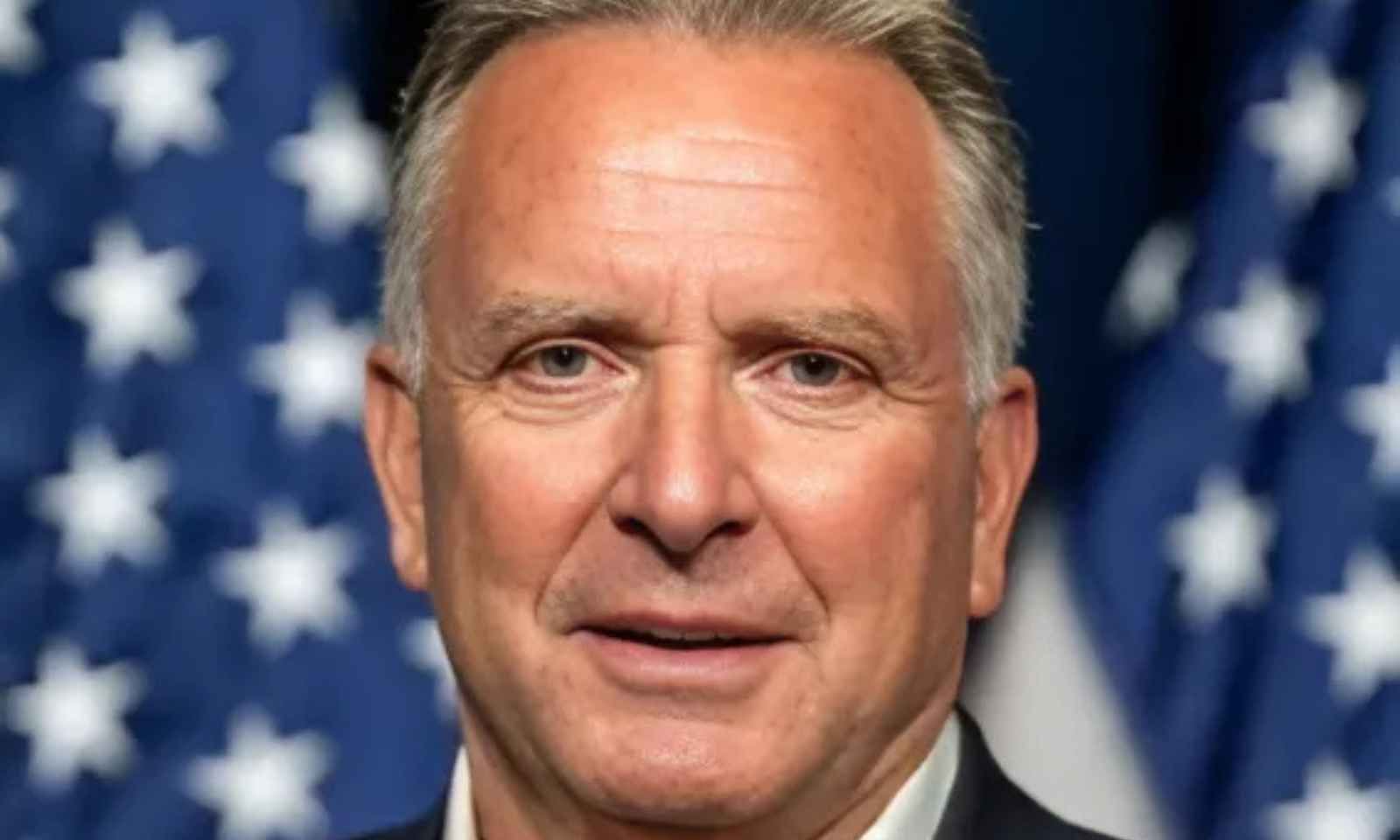
Steven Charles Witkoff is an American attorney, real estate investor, landlord, philanthropist, and founder of the Witkoff Group. Donald Trump has appointed him as Special Envoy to the Middle East. Photo/Witkoff
US transition
As the United States transitions to a new administration, Asafo sees both risks and opportunities.
He praised US President-elect Donald Trump’s team in pressuring Israel to agree to a ceasefire but remains wary of broader motives.
“With regard to Trump’s concerted effort to get a ceasefire agreement before his inauguration, I think that speaks to how costly this war has been for the US. Because the US has been the main sponsor and financier of the Israel military.”
Trump will be sworn in as the 47th President of the United States on Tuesday, NZ time.
Call to action
Asafo urges New Zealanders and Pacific people to hold their governments accountable.
“So the work is not over. It still needs to continue. We must remain vigilant.”